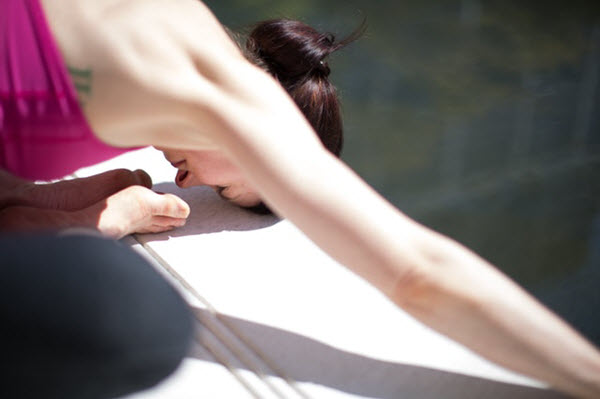It’s no secret that a lot of what we think and do are the products of our habits. These habits are often carried out unconsciously and they lead to our emotions and beliefs. These emotions and beliefs then lead to certain actions. These actions can reinforce our beliefs or have consequences that start the cycle all over again.
What exactly is mindfulness?
Mindfulness has been defined in many ways. Dr. Jon Kabat-Zinn has described it as, “Awareness that arises through paying attention, on purpose, in the present moment, non-judgmentally. It’s about knowing what is on your mind.”
Generally speaking, mindfulness has two major aspects to it.
The first involves the following:
• Being generally aware of the present moment
• Noticing when that awareness wanders
• Bringing that awareness back to the present moment
The second most common aspect of mindfulness is focusing on something in particular. This involves:
• Paying attention to something in particular, like one’s breath
• Noticing when the mind drifts from that thing
• Bringing attention back to that thing.
Strengthening mindfulness for self esteem
Mindfulness is a skill that most westerners are not used to. Becoming more mindful usually takes specific forms of practice. Many traditions and methods have been developed over the years.
The different forms of meditation have been generally accepted as mindfulness practice. Still, the main goal of being more mindful is to apply its principles to real life situations.

See Also: The Profound Effects Of Meditation On The Mind
Seven steps to utilize mindfulness for self-esteem
Stay in the present moment
Most of your distressful feelings are either memories of things gone wrong or thoughts of a less than optimal future. If you find yourself feeling less confident, odds are you’ve been harping on past failures or are worrying about a particular outcome.
You must strive to vigilantly observe when your mind isn’t focused on the present. When you notice your awareness drifting, bring it back to the here and now. Concentrate on what you’re doing right now at this very moment. There’s a saying, “If you have one foot in the future and the other in the past, you’re pissing on today.”
Don’t confuse ruminating and worrying about the future with planning. Depending on how ingrained your habit towards negative thinking is, it can be a thin line between worrying and planning.
Think of it like this.
If you tell yourself that you are going to do x, y and z, it’s usually planning. But, if your thinking is along the lines of “what if” or “such is probably going to happen”, then you’re probably worrying.
Don’t judge
Judge not or you shall be judged.
This saying has more truth to it than most people realize. Judging can become a formidable unconscious habit. What you often don’t realize is that by judging others, you’re actually drawing comparisons.
You will eventually judge someone to be better at something than you. And once that happens, you will start to down yourself and attack your own self-esteem.
A good way to practice being non-judgmental is to watch the news or read the newspaper and not form an opinion about what you see. In other words, try not to think that the event, the people involved or their actions are right, wrong, smart or stupid, etc. Then, try to bring this same mindset when dealing with others.
When you judge others, your mind slips out of the present moment. It makes you vulnerable to ruminating about the past and future. Remember, judge not, or so you shall be judged.
Stand tall
Research has shown that standing with good posture can have beneficial effects on your mood. It is hard to walk with one’s head, shoulders and chest held upright and not feel good. If you’re standing with good posture, most people will look at you and treat you as if you are confident. It can help you feel better about yourself.
One of the hindrances that make it hard for many people with low self-worth to stand tall is fear of eye contact. If you keep the two previous steps in mind, staying in the present and forming no judgments, it will be easier for you to look people in the eye.
Don’t stare. Just occasionally look people in the eye, especially if they’re looking at you. If you still find eye contact hard, there are a couple of hacks for it. You can look at the bridge of a person’s nose, instead of directly in the eye. Another trick is to look at a person’s ears if you’re directly in front of but not too close to him.
Demand your space
People with low self-esteem often don’t want to be noticed. When in public, they try to be as unobtrusive as possible. Whereas people with high self-worth stand out. One of the ways they do this is by taking up space.
For instance, when standing, try to keep your feet shoulder-width apart. When sitting, keep your knees apart as much as is appropriate for the situation. When you do this, you’re basically telling the world that you not only have balls, but they’re big ones. Try and keep your hands away from you as well, being mindful not to consistently fold your arms across your chest.
If you are a man, you should also be mindful of keeping your elbows away from your torso as well. Keeping the knees and elbows drawn in is often viewed as weak and submissive, not to mention effeminate in some cultures.
Make faces
The look you hold on your face often influences your mood. You should strive to have the look of a confident winner. Different people show that differently.
For one person, it could be a smiling face. For another, it could be the look of a person who’s serious and doesn’t play games. The choice is yours, as long as it is the facial expression that you feel a confident person would wear.
A lot of times, when you have low self-esteem, you defeat yourself before you even start. You have a look of defeat, submission or unhappiness plastered on your face. Not only does this affect your mood, but it can influence those around you.
When you smile, the whole world smiles with you. If you look upbeat and confident, it can make it easier for people to gravitate towards you. People instinctively know that emotions are contagious. Therefore humans tend to be attracted to people who feel good.
On the other hand, if you look like a depressed loser, not only will you tend to feel that way, but it can make people hostile towards you. They don’t want to feel like you do, so they will tend to avoid you or drive you away.
You’ll even find people will often be attracted towards you if you look slightly angry. The key word is “slightly”. If you look enraged or ready to explode, people may stand clear out of fear for their physical safety. Anger is not generally considered a positive emotion, but an angry person is generally looked at as having more confidence than one who looks submissive.
Relax

Relaxation techniques help to alleviate the effects of the fight or flight response. Being in a relaxed state won’t necessarily build confidence, but it can help to relieve anxiety and other adverse moods. This step takes practice.
In the beginning, it’s recommended that you practice some type of relaxation technique. This is so that you know what relaxation actually feels like. Once you have established how it feels, you’ll have to be mindful of the stress on your body. The common trouble spots are the face, neck, shoulder region and the central torso. During your day, you can do a quick self-check to see if there is unnecessary tension in those trouble spots.
Act as if
This step includes bringing all the other steps together. It’s sort of like being a method actor.
You contemplate how you would imagine a person with high self-esteem would act and then you strive to emulate that type of behavior. It may be awkward at first and people that know you may be put off a little. They may not take the ‘new’ you seriously. But, if you’re consistent, they will fall in line. The key is consistency.
You will eventually slip into your habitual ways of behaving. This is where mindfulness plays its part. You have to train your mind to become aware of your thoughts, attitudes and behaviors so that you can correct them as soon as possible. If done often and consistently enough, this in and of itself will become a habit.
See Also: 7 Ways Mindfulness Can Unlock The Door To Your Authentic Life
Conclusion
We see that high self-worth can be influenced by what you do and don’t do. Always remember that it’s about progress and not perfection. You should strive to be mindful of using your thoughts and behavior to:
• Prevent self-defeating thoughts from arising
• Eliminate self-defeating thoughts that do arise
• Bring up esteem building thoughts when they are not presently in mind
• Maintain esteem building thoughts that are currently in mind
If you want moderate gains in your self-esteem, be mindful of the steps you take to move through life. Your limits are only set by the limits of your mindset.
The post Seven Mindfulness Steps To Build Self-Esteem appeared first on Dumb Little Man.
from
https://www.dumblittleman.com/mindfulness-for-self-esteem/

No comments:
Post a Comment